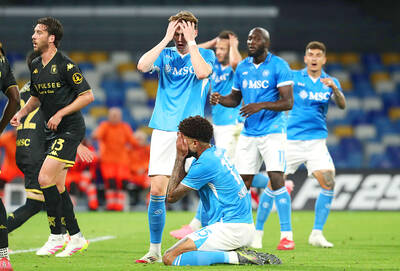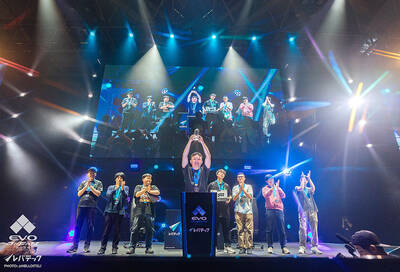The ancient sport of kabaddi, most popular in India’s rural north. is ironically making headlines for a modern-day menace — doping.
A World Cup being sponsored by the Indian state of Punjab has been marred by rampant use of performance-enhancing drugs resulting in at least 34 positive cases, excluding those banned for refusing to be tested.
Players from Britain, Australia, the US, Spain, Canada, Italy, Norway, Germany, Argentina and India have failed tests — teams representing Australia and the US were withdrawn from competition — and more cases are likely to be reported.
The bigger than usual prize money at stake in a sport that combines speed, strength and endurance with the rugged elements of rugby, wrestling and tag seems to have turned players to performance-enhancing substances.
And the head-turning number of doping cases is probably because of the fact that very few of the 250 players in the tournament expected to be tested — after all, there’s no international kabaddi federation — and partly because of ignorance about the list of banned substances.
“We were asked by the organizers to test players for doping,” Indian National Anti-Doping Agency (NADA) director-general Rahul Bhatnagar said in a telephone interview. “They had asked for some 70 players to be tested, but once we saw rampant doping, we decided to test every participant.”
As a result, the tournament involving 14 men’s teams and four squads in the women’s draw has been mired in controversy, outstripping even the number of doping cases at the trouble-plagued Commonwealth Games in New Delhi last year.
Expats from the subcontinent have taken the 4,000-year-old rustic game to all parts of the world. It’s popular because it requires little more than a square piece of land about half the size of a basketball court for matches and can be played indoors or out, on the beach, on grass, dirt or mud.
The lure of big money by kabaddi standards — the World Cup promises a purse of US$400,000 to the men’s champion team and US$200,000 to the runner-up — has attracted players from all over the world.
Although kabaddi has grown internationally since being introduced as a demonstration sport in the 1982 Asian Games in New Delhi, it does not have an international governing body. And there are various versions of the game with different rules.
The sport still has its spiritual home in India, where the National Kabaddi League has a prize of US$20,000 for the champion team. However, there are multiple leagues in most countries centered around places where South Asian expats have migrated.
World Anti-Doping Agency compliance was unlikely because of the absence of a recognized international federation, so players were surprised when anti-doping officials came visiting the 16 cities and towns across Punjab that staged matches of the second edition of the World Cup.
“The number of cases were a shock to us. But the list only kept increasing since we tested two players from each team in every match,” Bhatnagar said.
Another NADA official, V. Jayaraman, told Canadian media that steroid use was “problematic because the game is being spoiled by big money.”
So how is kabaddi played?
The seven-a-side version that is popular in south Asia and has been a regular medal sport in the Asian Games since 1990 is played between two teams. One team sends a raider into the rival half of the field to gain points by tackling, wrestling, grabbing or tagging opponents.
The raider enters the other team’s court chanting the word “kabaddi” until he runs out of breath. In the meantime, he tries to touch opposing players and then return to his own half to earn points. If he makes it back, the players he touched are out of the game.
Teams take turns to send raiders, with the aim of the defending team to either evade the raider or tackle him in such a way that he fails to return to his side before running out of breath.
India’s team hasn’t been badly tarnished at the tournament, but that’s because players were tested in trials earlier in the year — when 20 of 50 players tested positive to banned substances.
Leading up to the semi-finals on Friday, the doping count was six each from Australia and Britain, five each from Canada and Spain, four from the US, three from Italy, two from Norway and one each from Germany and Argentina.
Not surprisingly, there have been allegations of dope results being manipulated.
“Our surprise win over Pakistan has led to these dope test results,” US team manager Surinder Atwal told reporters in Punjab Province. “Organizers want an India-Pakistan final and our 20 years of hard work in trying to build a US team has gone to waste.”
The ongoing World Cup culminates with the finals scheduled for today in Ludhiana, Punjab’s biggest industrial town.

SSC Napoli’s Italian Serie A title hopes suffered a late setback on Sunday when they were held to a 2-2 draw at home against Genoa, setting up a thrilling season finale with closest rivals Inter just one point behind. The hosts remain top with 78 points, holding a slim lead over Inter, who won 2-0 at Torino earlier on Sunday, with two rounds remaining. To make matters worse for Napoli, midfielder Stanislav Lobotka, struggling with an ankle injury, was forced off just minutes after the match began. Scott McTominay delivered a perfect pass into the box where Romelu Lukaku got

Harry Kane opened the scoring ahead of lifting his first career silverware as Bayern Munich beat Borussia Moenchengladbach 2-0, with veteran Thomas Mueller playing his last home game for the club. Bayern officially won the title on May 4 when defending champions Bayer Leverkusen were held to a 2-2 draw at Freiburg, but were presented with the Bundesliga shield in front of their home fans at full-time. Dripping wet after being showered with beer by teammates, Kane said the title win was “an incredible feeling,” and hoped it would be “the first of many.” “It’s been lot of hard work, a lot of

INTER AWAIT: Superb saves by PSG ’keeper Gianluigi Donnarumma inspired the victory, as Arsenal were punished for misses, including one by Bukayo Saka Arsenal on Wednesday fell short on the big stage again as their painful UEFA Champions League semi-final exit against Paris Saint-Germain left Mikel Arteta to rue his club’s failure to provide him with enough attacking options. Arteta’s side were unable to reach the Champions League final for the first time in 19 years as PSG clinched a tense 2-1 win at Parc des Princes. Trailing 1-0 from last week’s first leg in London, the Gunners made a blistering start to the second leg, but could not convert their chances as Gianluigi Donnarumma’s superb saves inspired PSG’s 3-1 aggregate victory. Arsenal were punished for

Taiwanese e-sports veteran Lin “ET” Chia-hung yesterday successfully defended his King of Fighters XV title at this year’s Evolution Championship Series: Japan (EVO Japan), securing his second consecutive championship. Lin claimed victory with a 3-1 win over Japanese pro gamer “mok” in the grand final, repeating his earlier 3-1 win against the same opponent in the winners’ final. The 40-year-old earned a ¥1 million (US$6,897) cash prize at the two-day tournament, which drew 294 competitors. Mok, Lin’s toughest rival in the bracket, took home ¥400,000 as runner-up. Lin remains undefeated in match sets against mok in King of Fighters XV, holding a 10-0 record,